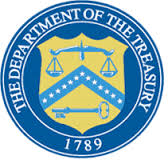A little lite reading for Friday. In the Matter of Nonhuman Rights Project, Inc., v. Lavery, decided June 8, 2017 by the New York Supreme Court, First Judicial Department, the Court considered the lower court’s judgment declining to extend habeas corpus relief to two adult male chimpanzees, Tommy and Kiko. The gravamen of the petitioner’s argument was that “chimpanzees are entitled to habeas relief is that the human-like characteristics of chimpanzees render them ‘persons’ for purposes of [The New York Civil Practice Law and Rules (CPLR)] article 70. A number of amicus briefs were filed with the court, including one by Laurence Tribe providing some perspective on the “long history” (chiefly from medieval times) of animals being tried for offenses such as attacking human being and eating crops. The Court found the petitioner’s position is without legal support or legal precedent.
These concerns may have their origin in Justice Douglas’ famous dissent in the case of Sierra Club v. Morton. In this case, the U.S. Supreme Court held that the Sierra Club had no standing to seek an injunction to restrain federal officials from approving an expansion of a skiing development in the Sequoia National Forest. Justice Douglas observed that
[T]the critical question of standing would be simplified and put neatly into focus if we fashioned a federal rule that allowed environmental issues to be litigated before federal agencies or federal courts in the name of the inanimate object about to be despoiled, defaced, or invaded by roads and bulldozers and where the injury is the subject of public outrage.
Continue Reading ›





